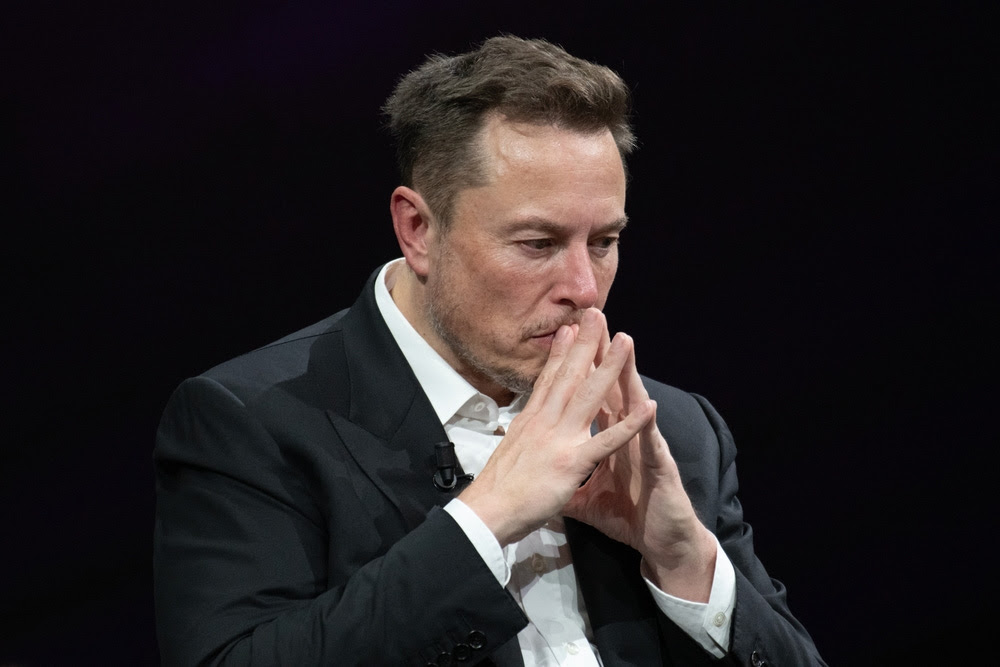Christopher Rufo
What the Left Did to Me and My Family

For the past five years, I have been fighting to defeat critical race theory and DEI.
This is a historic moment. For the past five years, I have been fighting to defeat critical race theory, gender cultism, and DEI. Now, President Trump has taken decisive action and instructed his administration to rip out these malicious ideologies root and branch, not just from the federal government but from all institutions that receive federal funding—universities, schools, corporations. All of it.
It has been a long road. The Left will try to memory-hole the recent past, but we must not forget a simple historical truth: the Left put America through a reign of terror after 2020. I have long hesitated to tell my personal story—I did not want to give my enemies the satisfaction—but now it’s time to lay out the facts. This is some of what the Left’s activists did to me and my family as they sought to intimidate me and shut me up.
When I lived in Seattle, they put up posters around my neighborhood with my home address, telling insane lies about me and instructing activists to show up at my door. Later, they sent letters to a few hundred of my neighbors, claiming I was a Nazi white supremacist. Death threats, references to my family, the whole deal. A few times, we had to pack up the kids and leave town.
One of these activists found one of my children at a park with the babysitter and yelled at him until he started crying. My son came home terrified. I figured out who this person was—a software developer who lived in the neighborhood—got his number, called him, delivered some “persuasive” words, and forced him to apologize to my son over the phone. I made sure he was much more frightened than my son had been.
Leftist activists organized employees within Microsoft to email-bomb my wife’s boss, claiming that she was a white supremacist. Thankfully, he thought it strange for her to be an Asian white supremacist and knew it was all a fabrication. I tracked down the ringleader and, “coincidentally,” he was fired a few months later. He overestimated his position and underestimated mine.
Then there were the calls and texts to our private numbers. Threats to rape my wife and murder my children. At one point, I reached out to the FBI about it, but the perpetrators had used number-cloaking apps and there was nothing law enforcement could do. I thought we had a lead in St. Louis and hired a private investigator to look into it, but the trail went cold. We fortified our home and studied up on the law. I was prepared to kill anyone who crossed the threshold to harm my family.
The institutions got in on it, too: organized campaigns to ruin my reputation, manipulate my Wikipedia page, cancel my speaking engagements, and list me on the websites of the Southern Poverty Law Center and Anti-Defamation League, in an attempt to get me banned from social media. The censorship apparatus put a target on my back, and the federal government egged it on. They all failed.
My experience is hardly unique. Many other conservatives have faced similar circumstances. Yes, our fight has been about CRT, DEI, and other ideological issues—but more than anything, it has been about safeguarding America’s free society from threats, violence, intimidation, and madness. That is why I fight. And, by the grace of God, why we are winning.
I have been able to continue this work, in part, because of my readers on Substack, who have provided an independent source of income for us. This is high-risk, high-reward work and my readers make it all possible. If you’re able, I encourage you to become a paid subscriber now.
Christopher Rufo
The “No Kings” Protest Is Pure Fantasy

 Christopher F. Rufo
Christopher F. Rufo
The underlying theory is that Donald Trump is an authoritarian leader on the cusp of becoming king.
I spent Father’s Day weekend in Hood River, Oregon, and stumbled upon the local “No Kings” anti-Trump protest. The crowd was populated mostly by Baby Boomers, who appeared to be living out a political fantasy, in which they could “stop fascism” by reenacting the protest movements of their youth. One sign, typical of the genre, derided Trump as a “felon, rapist, con man”; another riffed on Mary Poppins, reading “super callous, fragile, racist, sexist, Nazi POTUS.”
The underlying theory of this protest, which reportedly drew upward of 5 million demonstrators nationwide, is that Donald Trump is an authoritarian leader on the cusp of becoming king. The only way to stop him is to flood the streets and persuade the American people that Trump is a rotten character with despotic ambitions.
The theory, of course, is nonsense. Trump is a duly elected president. He is working with Congress on the budget. His deportation policy, which lent momentum to the weekend’s demonstrations, is predicated on enforcing existing law. Though President Trump contested the results of his first reelection campaign, he ultimately relented and peacefully transferred power to President Joe Biden—hardly the behavior of a tyrant.
Yet the protests are not without utility for the Left. They are not intended to grapple with the reality of the Trump presidency but to submerge reality in fantasy. The first step in entrenching the Left’s fictions in the public mind is to cultivate a sense of hysteria. In the president’s first term, crowds wore vagina-shaped hats and marched in the bitter cold. The tone of the “No Kings” protest was no less absurd, with women in Handmaid’s Tale costumes warning that Trump would reduce them to sex slaves.
The next step is to turn public energy into a threat. As seen in Los Angeles earlier this month, the Left’s more aggressive factions can operate alongside “mostly peaceful protests,” aiming to provoke law enforcement into overreacting. During Trump’s first term, leftist activists often played a double game—promoting “nonviolent” demonstrations for women’s rights or racial justice while allowing more confrontational elements to intimidate Trump supporters.
This time, immigration is the flash point. Trump has tied his presidency to mass deportations. The Left believes it can stop him by carefully shaping public opinion. That means highlighting emotional—if sometimes misleading—stories of deportation victims and sympathetic portrayals of protesters clashing with National Guard troops. These narratives are designed to paint Trump as an authoritarian and the Left as the resistance, with the aim of driving his approval ratings low enough to weaken his presidency.
The irony is that Trump does not have the power of a king—or, arguably, even the full power of the presidency, as established in Article II of the Constitution. District courts have blocked many of his policies down to the most minute detail, sometimes within hours of their adoption. A federal judge even prohibited the administration from removing gender-related content from government websites.
At the Hood River protest, I noticed a generational divide. The Baby Boomers were the most gullible, engaging in 1960s protest nostalgia and genuinely believing that America was under threat of incipient fascism. The younger generation, which came to political consciousness during the Trump era, seemed more skeptical. At the edge of the protest, I saw a group of teenage boys holding signs that read “Ban Onions” and “Ban Scratchy Blankets.” They seemed to see through the fiction of “No Kings,” viewing left-wing Baby Boomers, rather than Trump, as the rightful targets of satire and rebellion.
I hope that this attitude prevails. For 60 years, the Boomers have held a grip on the American political narrative; it has not been a story that conduced to national well-being. America elected Trump, in part, to demolish the remaining fantasies of the 1968 generation. Yes, no kings—and no more lies.
Invite your friends and earn rewards
Business
Washington Got the Better of Elon Musk

The tech tycoon’s Department of Government Efficiency was prevented from achieving its full reform agenda.
It seems that the postmodern world is a conspiracy against great men. Bureaucracy now favors the firm over the founder, and the culture views those who accumulate too much power with suspicion. The twentieth century taught us to fear such men rather than admire them.
Elon Musk—who has revolutionized payments, automobiles, robotics, rockets, communications, and artificial intelligence—may be the closest thing we have to a “great man” today. He is the nearest analogue to the robber barons of the last century or the space barons of science fiction. Yet even our most accomplished entrepreneur appears no match for the managerial bureaucracy of the American state.
Musk will step down from his position leading the Department of Government Efficiency at the end of May. At the outset, the tech tycoon was ebullient, promising that DOGE would reduce the budget deficit by $2 trillion, modernize Washington, and curb waste, fraud, and abuse. His marketing plan consisted of memes and social media posts. Indeed, the DOGE brand itself was an ironic blend of memes, Bitcoin, and Internet humor.
Three months later, however, Musk is chastened. Though DOGE succeeded in dismantling USAID, modernizing the federal retirement system, and improving the Treasury Department’s payment security, the initiative as a whole has fallen short. Savings, even by DOGE’s fallible math, will be closer to $100 billion than $2 trillion. Washington is marginally more efficient today than it was before DOGE began, but the department failed to overcome the general tendency of governmental inertia.
Musk’s marketing strategy ran into difficulties, too. His Internet-inflected language was too strange for the average citizen. And the Left, as it always does, countered proposed cuts with sob stories and personal narratives, paired with a coordinated character-assassination attempt portraying Musk as a greedy billionaire eager to eliminate essential services and children’s cancer research.
However meretricious these attacks were, they worked. Musk’s popularity has declined rapidly, and the terror campaign against Tesla drew blood: the company’s stock has slumped in 2025—down around 20 percent—and the board has demanded that Musk return to the helm.
But the deeper problem is that DOGE has always been a confused effort. It promised to cut the federal budget by roughly a third; deliver technocratic improvements to make government efficient; and eliminate waste, fraud, and abuse. As I warned last year, no viable path existed for DOGE to implement these reforms. Further, these promises distracted from what should have been the department’s primary purpose: an ideological purge.
Ironically, this was the one area where DOGE made major progress. In just a few months, the department managed to dismantle one of the most progressive federal agencies, USAID; defund left-wing NGOs, including cutting over $1 billion in grants from the Department of Education; and advance a theory of executive power that enabled the president to slash Washington’s DEI bureaucracy.
Musk also correctly identified the two keys to the kingdom: human resources and payments. DOGE terminated the employment of President Trump’s ideological opponents within the federal workforce and halted payments to the most corrupted institutions, setting the precedent for Trump to withhold funds from the Ivy League universities. At its best, DOGE functioned as a method of targeted de-wokification that forced some activist elements of the Left into recession—a much-needed program, though not exactly what was originally promised.
Ultimately, DOGE succeeded where it could and failed where it could not. Musk’s project expanded presidential power but did not fundamentally change the budget, which still requires congressional approval. Washington’s fiscal crisis is not, at its core, an efficiency problem; it’s a political one. When DOGE was first announced, many Republican congressmen cheered Musk on, declaring, “It’s time for DOGE!” But this was little more than an abdication of responsibility, shifting the burden—and ultimately the blame—onto Musk for Congress’s ongoing failure to take on the politically unpopular task of controlling spending.
With Musk heading back to his companies, it remains to be seen who, if anyone, will take up the mantle of budget reform in Congress. Unfortunately, the most likely outcome is that Republicans will revert to old habits: promising to balance the budget during campaign season and blowing it up as soon as the legislature convenes.
The end of Musk’s tenure at DOGE reminds us that Washington can get the best even of great men. The fight for fiscal restraint is not over, but the illusion that it can be won through efficiency and memes has been dispelled. Our fate lies in the hands of Congress—and that should make Americans pessimistic.
-

 COVID-1911 hours ago
COVID-1911 hours agoOntario man launches new challenge against province’s latest attempt to ban free expression on roadside billboards
-

 Energy19 hours ago
Energy19 hours agoThis Canada Day, Celebrate Energy Renewal
-

 Business2 days ago
Business2 days agoWhile China Hacks Canada, B.C. Sends Them a Billion-Dollar Ship Building Contract
-

 Alberta1 day ago
Alberta1 day agoSo Alberta, what’s next?
-

 Alberta10 hours ago
Alberta10 hours agoAlberta Next Takes A Look At Alberta Provincial Police Force
-

 Bjorn Lomborg2 days ago
Bjorn Lomborg2 days agoThe Physics Behind The Spanish Blackout
-

 Alberta12 hours ago
Alberta12 hours agoCanadian Oil Sands Production Expected to Reach All-time Highs this Year Despite Lower Oil Prices
-

 Business14 hours ago
Business14 hours agoPotential For Abuse Embedded In Bill C-5






